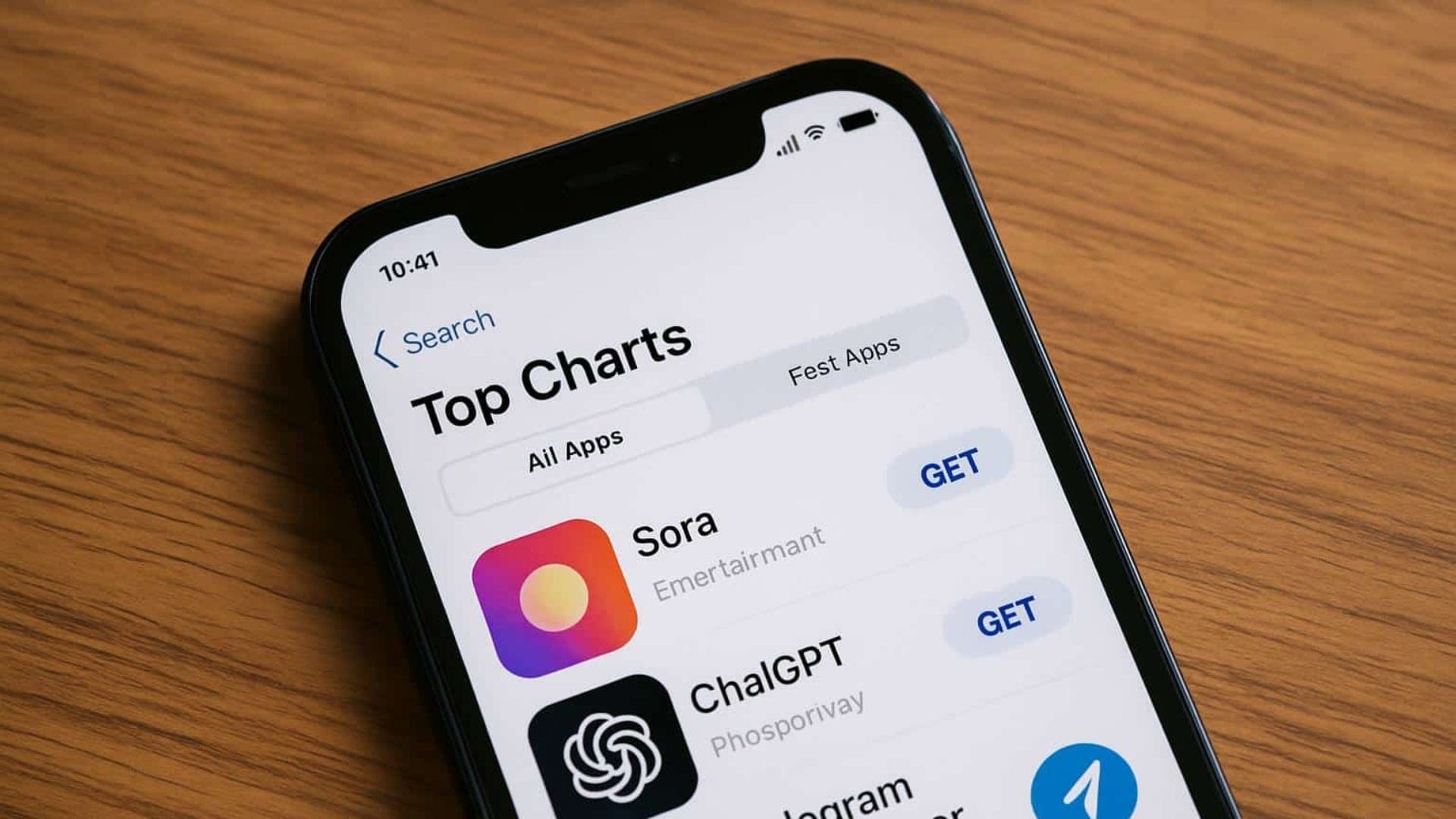OpenAI’s Sora tops app download charts after Sora 2 update
OpenAI’s Sora tops download charts after Sora 2 update, marking a new milestone in text-to-video AI and raising ethical concerns.

OpenAI’s text-to-video generative AI chatbot, Sora, has quickly risen to the top of the app download charts following the release of its upgraded Sora 2 platform. The app’s rapid growth underscores the expanding influence of OpenAI’s suite of artificial intelligence tools and their growing role in reshaping digital creativity.
Table Of Content
Sora’s rise to number one
Sora was launched on 30 September 2025, as an invite-only release in the United States and Canada. Designed as a social app, it enables users to create hyperrealistic short videos using text prompts, with the added ability to insert themselves or friends into the AI-generated clips.
According to data from AppFigures shared by 9to5Mac, Sora recorded around 56,000 installations in the U.S. on its first day, doubling to approximately 108,000 downloads by the second day. The app debuted in third place on the App Store charts and surged to the number-one position within 24 hours, reflecting immense public curiosity and enthusiasm for OpenAI’s latest innovation.
A new milestone for generative AI
The success of Sora marks a significant milestone in the advancement of generative artificial intelligence. While companies such as Google are making strides in image generation through projects like Nano Banana, OpenAI has taken a different approach by transforming video creation into a social and interactive experience.
The Sora 2 update turns text-to-video technology into a collaborative and entertainment-driven tool, rather than a simple utility for producing clips. These impressive download figures indicate that audiences are seeking a more creative and low-effort approach to creating engaging visual content.
By enabling users to create realistic short videos without the need for cameras, actors, or complex editing, Sora reduces the traditional barriers to content production. This puts OpenAI in direct competition with platforms such as TikTok, Meta’s Reels, and YouTube Shorts, where short-form video content dominates online engagement.
Promise and controversy
Despite its innovative appeal, Sora’s hyperrealistic video generation also raises ethical and safety concerns. Experts warn that the technology could blur the line between reality and fabrication, increasing the risk of deepfakes, misinformation, and consent violations.
While OpenAI has reportedly built safeguards to prevent the creation of inappropriate material, CNBC has noted that some users have already managed to bypass these protections. This could invite further scrutiny from safety teams, regulators, and the broader public.
OpenAI is expected to extend invitations beyond North America, potentially paving the way for a global release. Meanwhile, rival tech companies are likely to accelerate their own generative AI experiments to retain users who might shift towards Sora’s frictionless creativity.
Sora’s explosive debut signals not only the popularity of AI-driven content creation but also the growing debate over how these tools will shape authenticity, security, and creativity in the digital age.
















